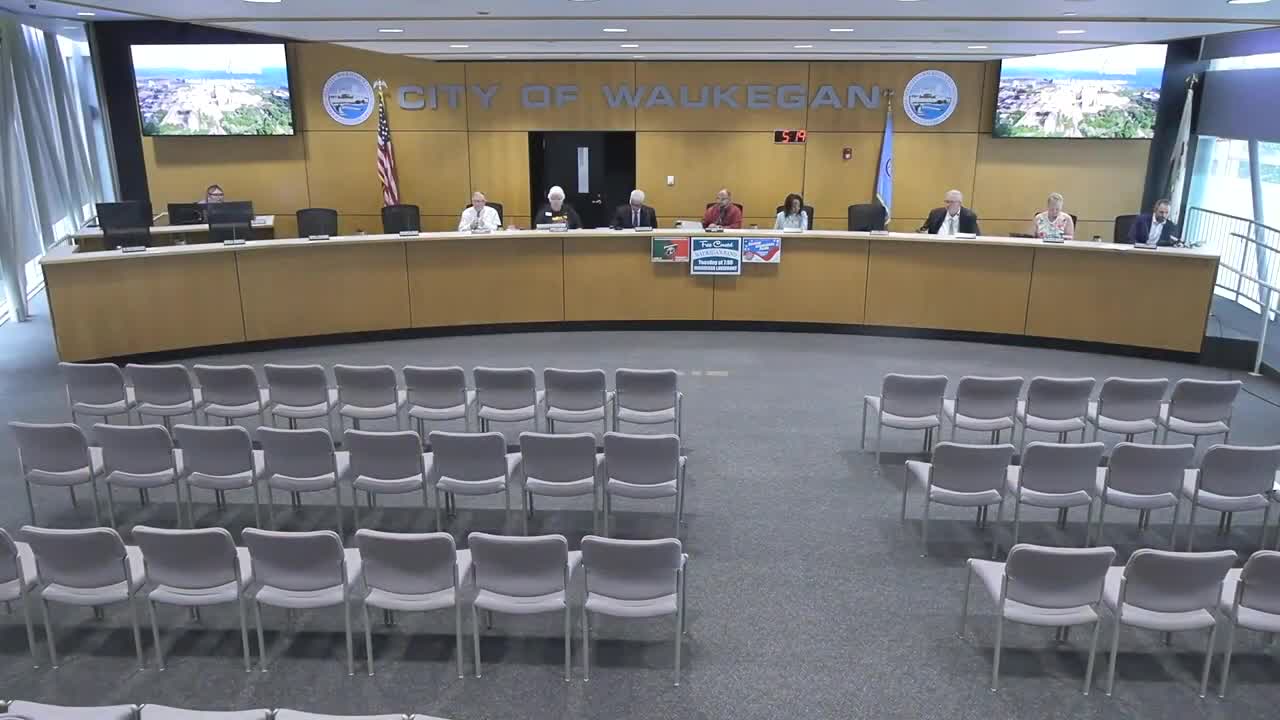Waukegan opens 30-day comment period on 2025–29 consolidated plan; HUD data transfer errors noted
Get AI-powered insights, summaries, and transcripts
Subscribe
Summary
City of Waukegan staff presented a draft consolidated plan for 2025–2029 at a public hearing June 16 and opened a 30-day comment period, outlining planned CDBG and HOME allocations and saying HUD’s IDIS data export is not pulling current statistics.
City of Waukegan staff presented a draft consolidated plan for program years 2025–2029 and opened a 30-day public comment period at a Finance & Purchasing Committee public hearing on June 16.
The consolidated plan, required for communities that receive U.S. Department of Housing and Urban Development funds, lays out priorities and proposed allocations for Community Development Block Grant (CDBG) and HOME Investment Partnerships (HOME) funds for the next five years. Larissa Garland, director (city staff presenting the plan), told the committee the city’s 2025 CDBG allocation is projected at $735,595 and the HOME allocation at $266,402, and that the draft action plan for program year 2025 lists specific agency awards and capital projects.
Garland said the draft lists about $110,000 directed to social-service providers (roughly 15% of the HUD grant allocation) and named the recommended subrecipients: Safe Place, Elder Care, Habitat for Humanity, Northern Illinois Food Bank, PADS Lake County, Prairie State Legal Services (disability and fair housing programs), YCC, YouthBuild Lake County and the Zachariah Center. The draft also includes a proposed $100,000 allocation for Dugdale Park renovations, $200,000 for a microenterprise small-business program and $50,000 initially for the city’s housing rehabilitation line item.
“HOME funds we receive through the Lake County Consortium are used for our substantial-rehab program,” Garland said. She told the committee the $50,000 shown for housing rehab in the draft is small because the city has a pending separate grant application for about $1,500,000 to support a larger rehab effort; the city does not yet know whether or how much of that grant it will receive. Garland said if that grant does not materialize the city would reallocate funds within the plan to address emergency and other housing needs.
Garland also described practical differences between funding sources: HOME funds are more restrictive and intended for substantial rehabs that bring a property to code, while CDBG funds are more flexible and can be used for emergency repairs such as sewer work.
On the microenterprise program, Garland said eligibility is limited to businesses with five or fewer employees (including the owner), must be located in the city of Waukegan and generally must have been in operation at least one year. Grants to individual microenterprise businesses would range from $5,000 to $25,000; the program budget listed in the draft is $200,000 for the year.
Garland described how most nonprofit subrecipients are paid on a reimbursement basis: organizations submit invoices and supporting documentation showing they have expended funds before the city reimburses salaries, benefits or other approved costs.
Committee members pressed Garland on the size of the housing rehab allocation and the program’s waiting list. Garland said the rehab line is small in the draft because the larger grant request is still pending and that she would return with recommended adjustments if the $1.5 million application is not awarded.
Garland alerted the committee that the HUD IDIS (Integrated Disbursement and Information System) export that populates several data tables in the draft is not pulling recent statistical data nationwide. She said pages 29–33 of the draft show HUD-populated figures from the prior consolidated plan (2019–2023) and that some fields are showing zeros because the correct data were not transferred. “Those are numbers that are generated by HUD,” she said, adding that staff cannot edit pulled data until HUD fixes the IDIS export. The draft remains available for public comment while the city continues to work with HUD.
The draft consolidated plan will remain open for public comment from June 16 through July 17. Garland told the committee the plan is scheduled to return to the Finance & Purchasing Committee on July 21 for approval, with submission to HUD expected on July 22 if approved.
The hearing included questions about program details, including past use of HOME funds for projects associated with the housing authority and a staff estimate that the city has funded about 30 microenterprise businesses over prior years (Garland prefaced that number with “don’t quote me,” indicating it was an approximate figure). The city invited written comments and said the draft notice and materials were available in English and Spanish.
The committee closed the public hearing by motion; the hearing record will be part of the 30-day comment record available to HUD when the city submits the final plan.
